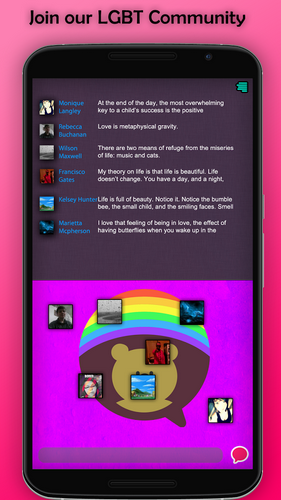YahooNews
Traditional dating sites like Match.com and eHarmony have always been a hard sell on college campuses, where the incredible density of youthful single people all living in the same buildings makes turning to the Internet to find love seem unnecessary and old-fashioned.
But now, a fresh breed of dating services is making headway with this junior and more carefree demographic. These apps are available very first (or only) on smartphones; rely strenuously on serendipity and the instantaneous proximity of fellow users; and supply quick acceptance or dismissal, rather than courtships gamed out over lengthy questionnaires that are aimed at predicting longer-term compatibility. The apps are also more geared toward short-term hookups than the traditional dating sites.
We’ve listed seven matchmaking apps that college students are using now. Here’s where Cupid’s arrow is flying in 2013:
Tinder – Most likely the buzziest dating app out there, Tinder is like a location-based “hot or not” for the iPhone or Android. You are shown a headshot of another Tinder user who is presently nearby: Swipe right if you’re interested, swipe left if you aren’t. If two Tinderers are mutually interested, a talk box opens so that they can get to know each other. Some have used the app for long-term or more formal dating, but it also has a reputation for hookups, where you can meet someone near you for a quick romantic rendezvous.
Speaking of which.
Unspoiled – Unspoiled is like Tinder’s seedy, steamy cousin: It only exists to set people up for the night. The invitation-only app (which has yet to launch, but which is coming soon to iOS and Android and has already attracted tons of press) primarily works like Tinder: Upload a photo, designate which gender(s) you’re interested in and then commence choosing fellow users who kittle your fancy. If you match with someone, however, it’s expected that you will just instantaneously do the deed. You work out whose place is free and then you get to it. No subtlety here.
Bang With Friends – No subtlety here, either: Connect your Facebook account to BWF and choose which of your friends you’d be interested in spending the night with. If they have flagged you as well, the app will alert you and you can message each other and, perhaps, put the app’s title into movement.
Grindr – The app that embarked the geosocial dating craze, Grindr is a gay-only app for iPhone, Android and BlackBerry that displays, in grid form, all of the masculine users in close proximity who might be available. Unlike with Unspoiled or Tinder, everyone is free to message everyone else (however, there is a block function for creeps). The makers of Grindr actually released a version aimed at straight users, called Blendr, but it never caught on, perhaps because the safeguards of Tinder were not in place.
Snapchat – Not technically for dating, but certainly an app that has been used to facilitate it, Snapchat is the megapopular photo-messaging service that permits Android and iPhone users to send each other pictures and movies that vanish forever after a designated amount of time (Ten seconds is the maximum length). The app has attracted some scrutiny for seemingly providing minors a safe space to sext and send lewd photos; mostly, tho’, it’s being used for picture messaging inbetween friends, flirts and faraway couples.
Coffee Meets Bagel – Coffee Meets Bagel is like a more polite version of Bang With Friends. Each day a CMB user will receive an email about a potential match, usually a friend of a Facebook friend. You can click either “Like” or “Pass” on that day’s “Bagel.” If you like each other, you can set up a date, with Groupon-style discounts to local coffee shops and restaurants suggested up as meeting points.
Date My School – This app merges the practice of a traditional dating site with the fresh breed of apps’ concentrate on user location. The app functions like a gated campus, permitting users to search for singles who are either current students or alumni of your selected school. To keep out poseurs or frauds, you’ll need an “.edu” email address to prove that you are a current student, or a match in the alumni records of your selected university to prove that you actually attended classes. Once you’re in, you can find coeds on your campus who share your interests, all without stepping out of your dorm room or actually talking to anybody.
Explore the entire Born Digital series from Yahoo News:
